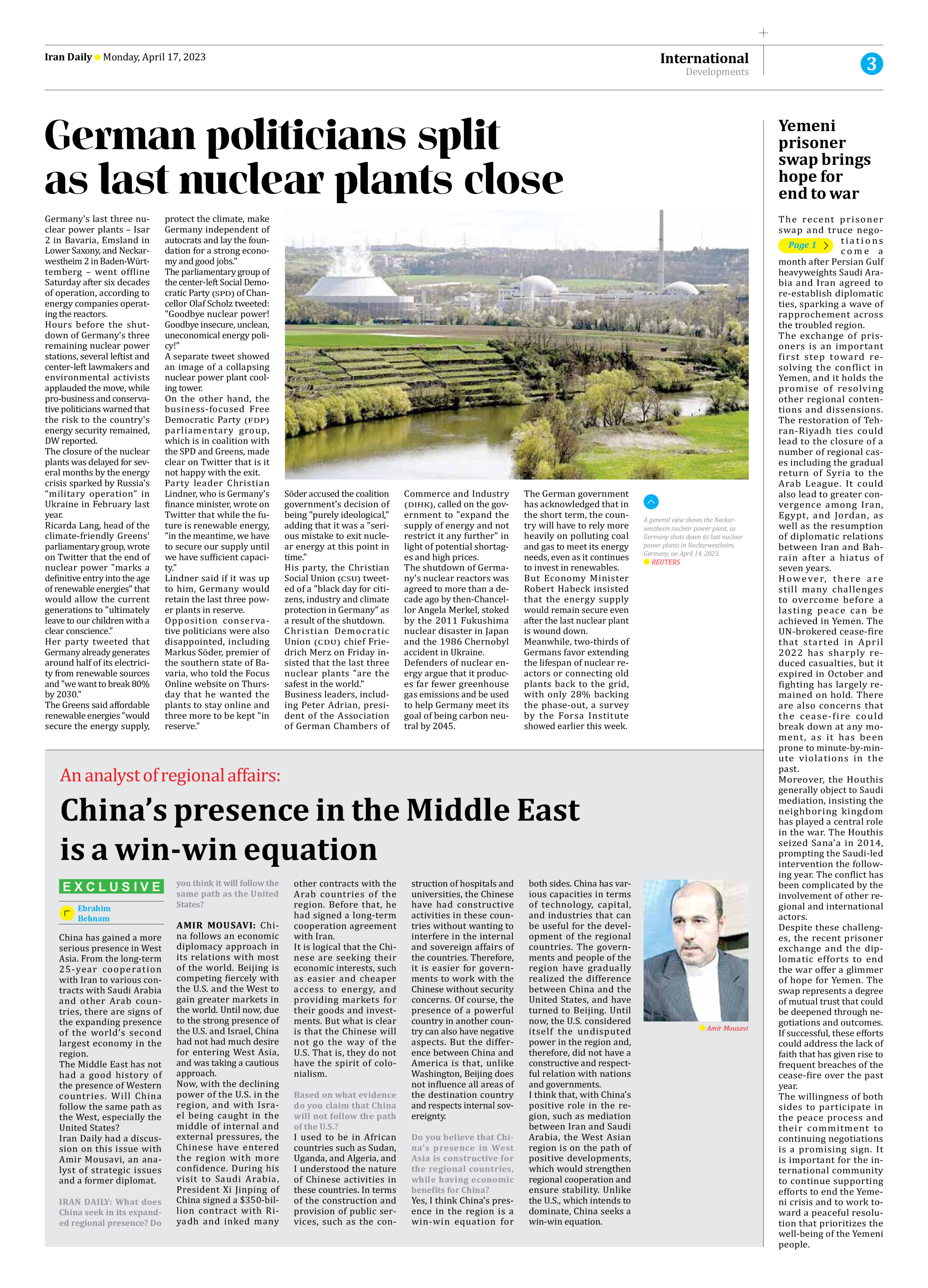
An analyst of regional affairs:
China’s presence in the Middle East is a win-win equation
Ebrahim
Behnam
China has gained a more serious presence in West Asia. From the long-term 25-year cooperation with Iran to various contracts with Saudi Arabia and other Arab countries, there are signs of the expanding presence of the world’s second largest economy in the region.
The Middle East has not had a good history of the presence of Western countries. Will China follow the same path as the West, especially the United States?
Iran Daily had a discussion on this issue with Amir Mousavi, an analyst of strategic issues and a former diplomat.
IRAN DAILY: What does China seek in its expanded regional presence? Do you think it will follow the same path as the United States?
AMIR MOUSAVI: China follows an economic diplomacy approach in its relations with most of the world. Beijing is competing fiercely with the U.S. and the West to gain greater markets in the world. Until now, due to the strong presence of the U.S. and Israel, China had not had much desire for entering West Asia, and was taking a cautious approach.
Now, with the declining power of the U.S. in the region, and with Israel being caught in the middle of internal and external pressures, the Chinese have entered the region with more confidence. During his visit to Saudi Arabia, President Xi Jinping of China signed a $350-billion contract with Riyadh and inked many other contracts with the Arab countries of the region. Before that, he had signed a long-term cooperation agreement with Iran.
It is logical that the Chinese are seeking their economic interests, such as easier and cheaper access to energy, and providing markets for their goods and investments. But what is clear is that the Chinese will not go the way of the U.S. That is, they do not have the spirit of colonialism.
Based on what evidence do you claim that China will not follow the path of the U.S.?
I used to be in African countries such as Sudan, Uganda, and Algeria, and I understood the nature of Chinese activities in these countries. In terms of the construction and provision of public services, such as the construction of hospitals and universities, the Chinese have had constructive activities in these countries without wanting to interfere in the internal and sovereign affairs of the countries. Therefore, it is easier for governments to work with the Chinese without security concerns. Of course, the presence of a powerful country in another country can also have negative aspects. But the difference between China and America is that, unlike Washington, Beijing does not influence all areas of the destination country and respects internal sovereignty.
Do you believe that China’s presence in West Asia is constructive for the regional countries, while having economic benefits for China?
Yes, I think China’s presence in the region is a win-win equation for both sides. China has various capacities in terms of technology, capital, and industries that can be useful for the development of the regional countries. The governments and people of the region have gradually realized the difference between China and the United States, and have turned to Beijing. Until now, the U.S. considered itself the undisputed power in the region and, therefore, did not have a constructive and respectful relation with nations and governments.
I think that, with China’s positive role in the region, such as mediation between Iran and Saudi Arabia, the West Asian region is on the path of positive developments, which would strengthen regional cooperation and ensure stability. Unlike the U.S., which intends to dominate, China seeks a win-win equation.







